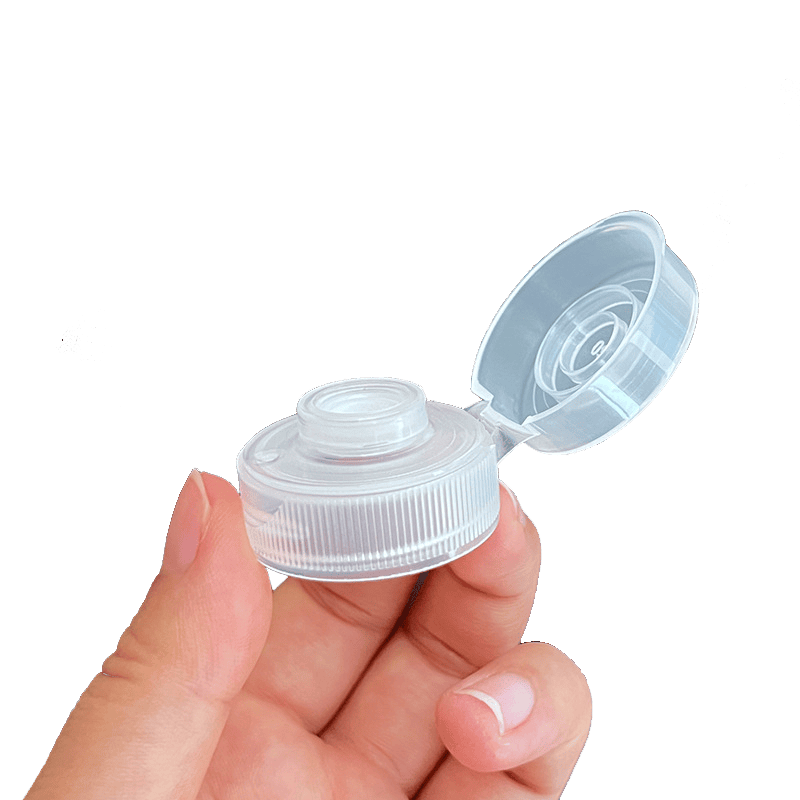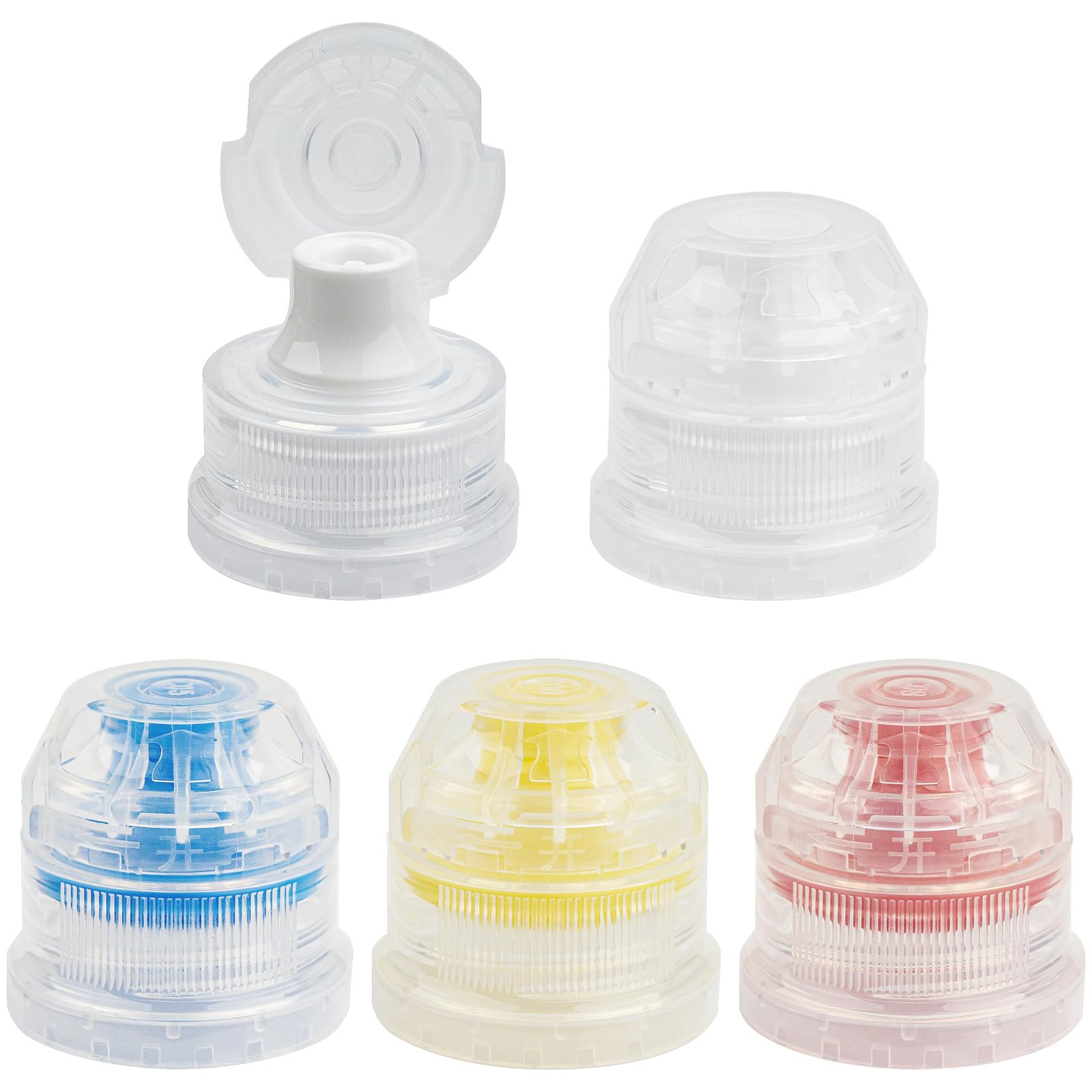

Kaip sukurti sandarų sportinio butelio dangtelį: Inžinieriaus įžvalgos
Sukurti tikrai sandarus dangtelis sportinių buteliukų yra ne tik gamybos iššūkis - tai reali problema naudotojams, kurie susiduria su išsiliejimais treniruočių, žygių ar kelionių metu. Šiame vadove atskleidžiamos inžinerinės strategijos, kuriomis grindžiamos tobulos sandarus dangtelis, ypač tie, kurie pagrįsti apverčiamas dangtelis technologijos, pvz. Apverčiamasis dangtelis 20/410, 24/410, ir 28/410. Taip pat nagrinėsime, kaip tokie elementai kaip silikoniniai vožtuvai, vyrių konstrukcija, o teisė apverčiamo dangtelio pelėsis gali lemti arba sužlugdyti dizainą.
Kodėl sandarus dangtelis yra svarbesnis, nei manote
Niekam nepatinka, kai vanduo laša į sporto krepšį ar mirko dokumentus. A sandarus dangtelis išsprendžia šį košmarą. Tiek sportininkams, tiek į darbą ir atgal keliaujantiems žmonėms sandarumo patikimumas yra svarbiau už estetiką. Apverčiamieji dangteliai, ypač su tiksliais vyriais ir sandariomis formomis, yra tvirtas atspirties taškas, tačiau juos reikia kruopščiai suprojektuoti.
"Flip Top Cap" dizainas prasideda nuo medžiagos pasirinkimo
Inžinieriai paprastai renkasi polipropileno arba HDPE plastikiniai buteliai su apverčiamu dangteliu rinka. Tačiau vien tik plastiku butelio neuždengsite. Vidinės detalės, pvz. apverčiamas dangtelis su silikoniniu vožtuvu, atlikti sunkų darbą. Silikonas sukuria lankstų, sandarų sandarumą, kuris prisitaiko prie spaudimo ir laikui bėgant nesutrūkinėja ir nesuyra.
"Fit Matters": Pasirinkite tinkamą kaklo dydį: 20/410, 24/410 arba 28/410
A Apverčiamasis dangtelis 20/410 tinka siauram butelio kakleliukui. A apverčiamas dangtelis 24/410 yra jūsų pasirinkimas vidutinio dydžio profiliams. Apverčiamasis dangtelis 28/410 tinka didesniems buteliams. Nesuderinti dydžiai blogai sandarina. Dar blogiau - jie nesandarūs veikiant slėgiui ar judant. Nesandari konstrukcija prasideda nuo to, kad dangtelis ir butelio kaklelis gerai sutampa.
"Flip Top" dangtelio vyrių dizainas: Paslėptas herojus
Vyris ant apverčiamas dangtelis ne tik atidaro ir uždaro. Jis lemia, kaip lengvai naudotojas gali uždaryti butelį viena ranka. Tačiau dar svarbiau, kad jis turi įtakos įtempimui, kuris laiko dangtelį uždarytą. Silpnas lankstas? Tai tik ir laukia, kada gali nutikti nelaimė.
Tvirtas, bet lankstus apverčiamo dangtelio lanksto konstrukcija dangtelis priglunda prie vožtuvo. Inžinieriai dažnai keičia gyvojo vyrio storį arba sutvirtina jį briaunomis, kad prailgintų tarnavimo laiką ir būtų atsparus nuovargiui.
Naudokite 3D prototipus: Flip Top dangtelio 3D modelis išankstiniams bandymams
Prieš imdamiesi brangiai kainuojančių įrankių, inžinieriai viską imituoja naudodami Apverčiamas dangtelis 3D modelis. Naudodami tinkamą modelį galite išbandyti įtempimo taškus, vyrių elgseną, vožtuvo suspaudimą ir sandarinimo slėgį. Čia aptiktos klaidos yra pigesnės nei vėliau gamybos ceche.
Išplėstinė nuotėkio prevencija: Silikoniniai vožtuvai ir dvigubi sandarikliai
Pridėti apverčiamas dangtelis su silikoniniu vožtuvu keičia žaidimą. Šie vožtuvai šiek tiek lankstosi, kad išleistų skystį išspaudus ar gurkštelėjus, tačiau įprastomis sąlygomis išlieka sandarūs. Kartu su dvigubu sandarinimo briauna dangtelio viduje - tai yra sandarumas.
Šios sistemos ypač gerai veikia buteliuose, skirtuose kokteiliams, baltymų kokteiliams ar gazuotam vandeniui. Slėgio valdymas yra svarbesnis, nei dauguma žmonių mano.

Gaukite konkurencingą
kraštas
Prekės ženklais pasitiki daugiau nei 20 šalių. Konkurencingos kainos, puikus aptarnavimas, individualus palaikymas.
Nuo formos iki masinės gamybos: Apverčiamųjų dangtelių formų pagrindai
Jūsų dizainas apverčiamo dangtelio pelėsis arba apverčiamo dangtelio formos dizainas lemia galutinę kokybę. Dėl neteisingo suderinimo, susitraukimo ar prasto srauto dizaino dangteliai nesusilygina ir nesandariai užsidaro. Čia svarbiausia yra tikslumas.
Naudokite kelių ertmių formas, kad būtų užtikrintas didesnis nuoseklumas
Įtraukite ventiliaciją, kad išvengtumėte oro įkalinimo.
Lengvam išformavimui leidžiamas nedidelis traukos kampas
Dėl blogo pelėsio deformuojasi dangteliai. Deformuoti dangteliai nesandarūs. Čia netaupykite.
Flip Top dangtelio uždarymo mašina: Automatizavimas, kuris yra svarbus
Po įpurškimo dangteliai surenkami ir užmaunami ant butelių naudojant apverčiamo dangtelio uždarymo mašina. Ši mašina turi spausti tolygiai, kad būtų išvengta dangtelio iškraipymo. Neteisingas suderinimas? Tai sutrupina sandariklį, todėl atsiranda mažyčių nesandarumų, kurių niekas nepastebės, kol butelis neatsidurs apverstas kažkieno sporto spintelėje.
Mašinos taip pat turi idealiai suderinti lankstą ir vožtuvą. Žmogaus klaida šiame etape sugadina visą partiją.
"Flip Top Dispensing Cap" rinkos tendencijos ir poreikiai
Svetainė Dozavimo dangtelių su atlenkiamu dangteliu rinka greitai auga. Vartotojai reikalauja patogumo, bet ne nutekėjimo sąskaita. Ekologiškos pakuotės taip pat skatina pramonę rinktis minimalistinį, bet funkcionalų dizainą, įskaitant perdirbamas apverčiamieji dangteliai ir uždarymo įtaisai. Dabar daugiau prekių ženklų prašo dizaino su keičiamais silikoniniais įdėklais arba keičiamais sandarikliais.
Išmanūs prekių ženklai bendradarbiauja su gamintojais, kurie siūlo CAD prieigą prie Apverčiamas dangtelis 3D modelis ir greita prototipų įrankių gamyba.
Nesandaraus dangtelio bandymas - ne tik purtyti
Vien kratymo testai neatskleidžia visos istorijos. Inžinieriai naudoja:
Slėgio kameros bandymai
Invertuoto nuotėkio modeliavimas
Kritimo iš 1,5 metro bandymai
Ilgalaikis sandarumo išlaikymas esant įtampai
Nepraleidžiantys skysčio - tai ne tik šiandien, bet ir kitą mėnesį.
Išvados: Ko reikia norint sukurti idealų sandarų dangtelį
A sandarus dangtelis nėra magija. Tai išmanioji inžinerija. Naudokite tinkamą apverčiamas dangtelis 24/410 arba 28/410 tinka. Pridėkite silikoninis vožtuvas lankstumo ir slėgio kontrolės. Rinkitės lankstą, kuris neatsibosta. Išbandykite jį anksti naudodami 3D modelis. Įsitikinkite, kad dangtelio pelėsis yra nepriekaištingas, ir nesigailėkite, kad surinkimo metu naudosite žemos kokybės uždarymo mašina.
Jei visus šiuos dalykus atliksite teisingai, klientai daugiau niekada nesusimąstys apie jūsų dangtelį - būtent taip ir turėtų būti.
Ką sako mūsų klientai



Greita apžvalga: Inžinerijos prioritetai, susiję su sandariais dangteliais
Tiksliai suderinkite kaklo dydžius (20/410, 24/410, 28/410)
Naudokite maistinio silikono vožtuvus, kad būtų galima pritaikyti sandariklius
Suprojektuokite patikimus lankstus, kad išlaikytumėte įtempimą
Ankstyvas prototipo kūrimas naudojant 3D modelius
Investuokite į tikslias formas ir surinkimo mašinas
Tikrinkite ne tik teorinį slėgį, bet ir realų veikimą



Atsakymų: 1